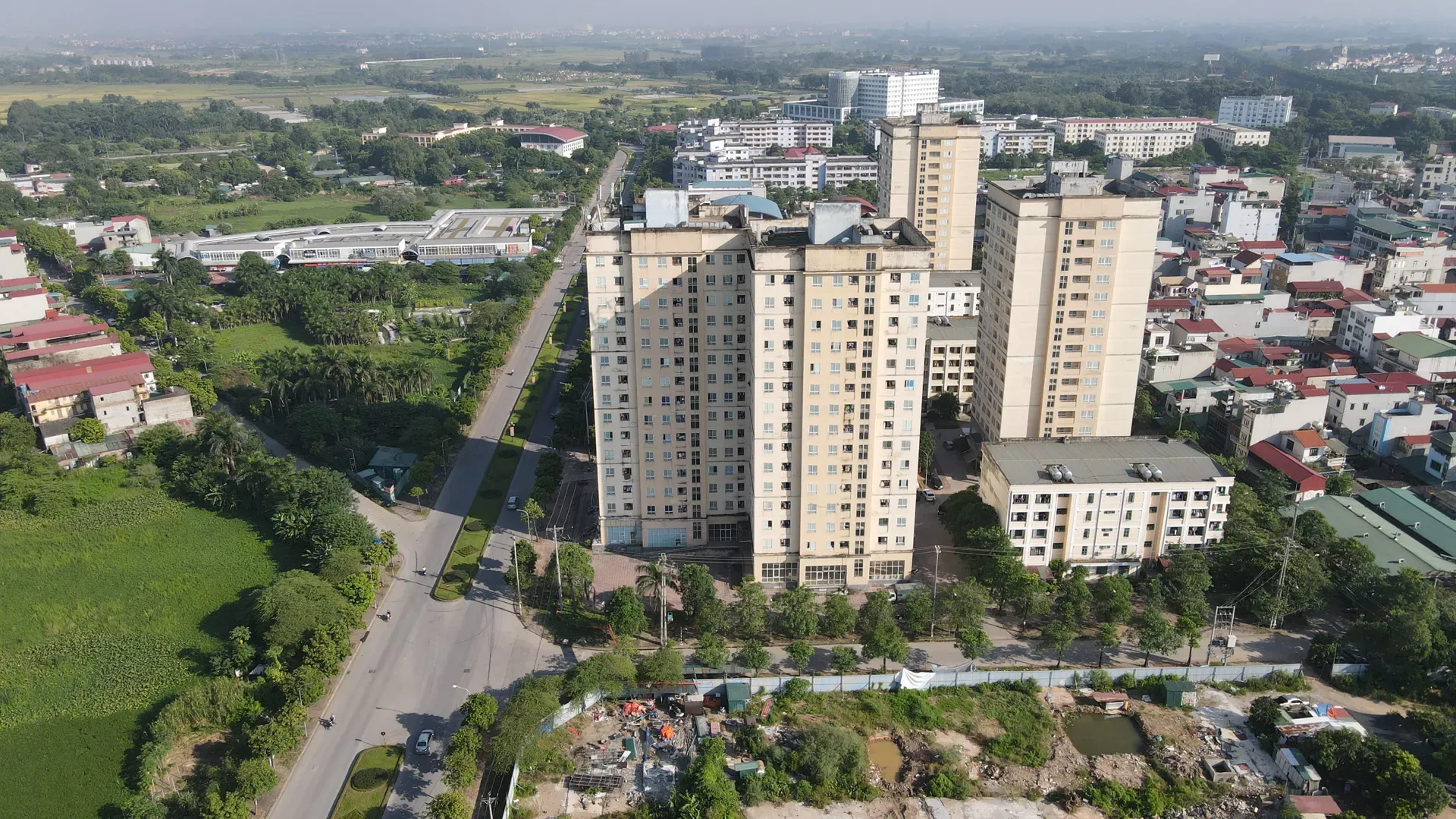Hanoi social housing prices double to near $200,000 per unit amid limited supplies
Hanoi’s social housing prices have nearly doubled in two years, pushing many low-income buyers out of the market.
Social housing prices in Hanoi have surged for the past two years to reach as much as VND5 billion (US$190,000) per unit on the secondary market amid high market demand and low supplies.
According to data from Batdongsan.com.vn, at the Rice City project in Bo De Ward, prices have doubled from around VND2.3 billion – VND2.4 billion (US$87,400 - $91,200) per unit at the beginning of 2024 to at least VND4 billion ($152,000) now.

A social housing complex in Dong Anh Commune, Hanoi. Photo: Pham Hung/The Hanoi Times
At the Hope Residence project in Viet Hung Ward, prices have also jumped sharply from VND2.1 billion – VND2.3 billion ($79,800 - $87,400) to VND3.8 billion – VND4.3 billion ($144,400 - $163,400) per unit. In Thach Ban Ward, the Thach Ban project has seen prices reach as much as VND4.2 billion ($159,600) per unit.
The same doubling trend has been recorded in former inner-city districts such as Hoang Mai and Thanh Tri.
On the primary market, several social housing projects in Hanoi that are ongoing or about to launch also report record-high prices.
Among them, the Rice City Long Chau project in Bo De Ward is now selling for nearly VND30 million ($1,140) per square meter, the highest price ever in the social housing segment.
Hanoi currently has five social housing projects either on sale or preparing for sale, expected to release units from the fourth quarter of 2025 to early 2026, including the Kim Hoa Urban Area project, the CT1 Thuong Thanh project and the Dong Anh project.
With prices commonly ranging between VND20 million ($760) and 30 million ($1,140) per square meter, apartments of 60–70 square meters cost from VND1.2 billion ($45,600) to more than VND2 billion ($76,000), a figure high for low-income earners.
Under current regulations, individuals eligible for social housing must earn no more than VND15 million ($570) per month, while families must have a combined income of no more than VND30 million ($1,140) per month.
According to Tran Xuan Luong, Deputy Director of the Institute for Real Estate Market Research and Evaluation (VARS IRE), social housing has yet to succeed because current policies lack clear segmentation.
He recommended classifying housing units into three types. Commercial projects should suit high-income groups and price-stabilized housing should match the needs of middle-income earners.
The third category is social houses for disadvantaged groups, veterans, armed forces and people with disabilities, he said, adding that the last category should be for rent or lease-purchase only.
Luong also said that price-stabilized housing should allow workers to buy homes after 10–15 years of savings, while commercial housing should focus on higher standards that reflect real market value.








